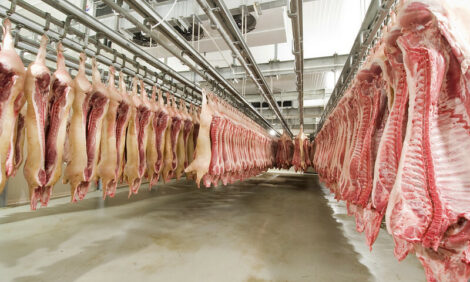



December lean hog futures settle down - CME
Cattle close mostly lower following two-month highChicago Mercantile Exchange (CME) live cattle futures ended mostly lower on Wednesday, consolidating a day after the benchmark December contract set a near two-month high, reported Reuters.
CME most-active December live cattle settled down 0.075 cent at 184.325 cents per pound and the spot October contract ended down 0.150 cent at 183.050 cents. Feeder cattle futures ended higher with the November contract finishing up 0.650 cent at 244.050 cents per pound.
A dip in wholesale beef prices added pressure. The US Department of Agriculture priced choice cuts of boxed beef on Wednesday afternoon at $298.17 per hundredweight (cwt), down a steep $3.72 from Tuesday and the lowest reading since May 10. Select cuts fell by $3.59 at $283.28 per cwt.
The USDA reported Wednesday's cattle slaughter at 120,000 head and the week-to-date kill at 363,000 head, down about 4% from a year ago.
A softer close on Wall Street equity markets added to bearish sentiment, dimming optimism about consumer demand for pricey cuts of beef. The Dow Jones Industrial Average and S&P 500 backed down from record highs as investors awaited signals on upcoming interest rate cuts.
Hog futures inched lower on profit-taking a day after the most-active December contract reached its highest since June 3, and as traders squared positions ahead of Thursday's quarterly USDA Hogs and Pigs report.
CME December lean hog futures settled down 0.075 cent at 74.900 cents per pound and February hogs ended down 0.075 cent at 78.625 cents.
The USDA priced pork carcasses at $94.10 per cwt, down 14 cents from Tuesday.
Ahead of Thursday's quarterly hog report, analysts surveyed by Reuters on average expect the government to report the US hog herd as of Sept. 1 at 76.285 million head, up 0.2% from a year earlier. The number of hogs kept for breeding was seen down 2.1% year-on-year.
Meanwhile, agriculture organisations urged the White House to take action to avert a potential Oct. 1 strike at US East and Gulf Coast ports that handle roughly half of the country's ocean trade, including consumer staples like coffee, meat and eggs.









